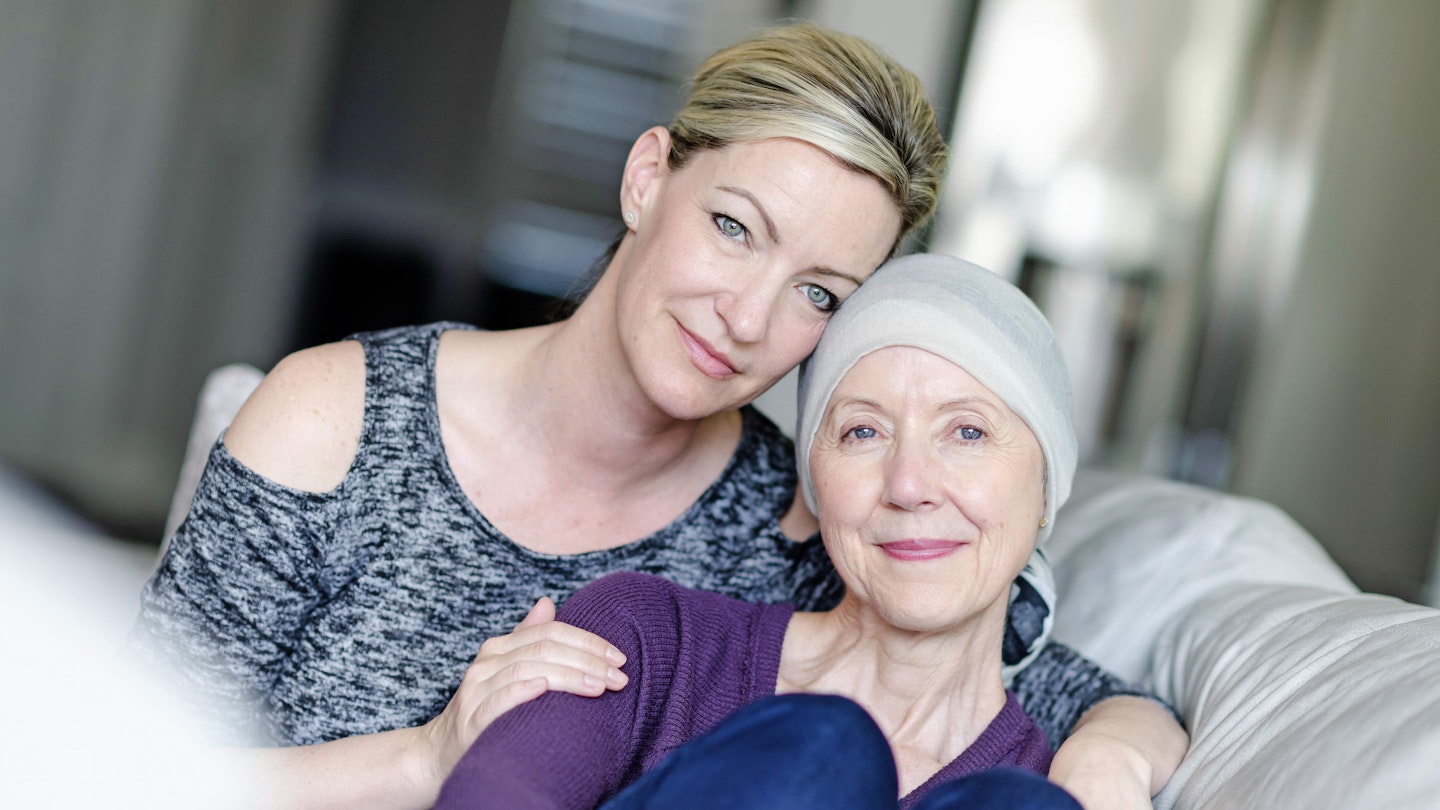GP, wife, mother, sister and cancer survivor Philippa Kaye shares her tips about living with the disease
One in two people will be diagnosed with some form of cancer during their lifetime, which means that even if we aren’t affected ourselves, we’re almost certainly going to know someone who is.
Although cancer is a scary diagnosis, the majority of us will recover entirely — and even if a full recovery isn’t possible, more of us than ever before are living with cancer.
As someone who was diagnosed with bowel cancer at the age of 39, Dr Philippa Kaye knows what it’s like to have multiple surgeries, chemotherapy and more.

Here she shares her tips and advice…
How to love your body
It feels like your body is attacking you, you may not feel physically or mentally well, you may have scars or other physical reminders of your cancer, but remember this — your body is amazing, strong and resilient and it will rebound and recover.
I look at my Caesarean scar and see a body which grew my children. I see my surgery scars and I see strength and a body which has survived cancer. I hope in time you see your body this way too!
How to live with treatment
Treatment can be surgery, chemotherapy, radiotherapy, immunotherapy and more, and will be tailored to your needs. Different cancers and treatments can have differing side effects and recovery times.
Ask for help from your medical team, from your specialist oncology nurse, from a local Maggie’s centre, or from a charity or support network.
Look after your mental health as much as your physical health — the two are linked. That may mean exercise, or a hot bath, or medication, but do see your GP if you need to. Lots of local and national cancer charities will offer a form of therapy, be it individual or group therapy.
Dealing with fatigue
It’s normal to feel tired after surgery or during chemotherapy or radiotherapy. Make sure you get enough rest and listen to your body. Exercise can help you feel less tired as well as keeping up your fitness levels.
Appetite and nausea
Your appetite may be affected for a number of reasons, from nausea to dry mouth or mouth ulcers. Nausea can be treated with medications. Don’t feel that you have to power through side effects — take the meds if you need them!
Dry mouth can be treated by keeping hydrated, but a cube of pineapple can help stimulate saliva production — though not if you have mouth ulcers, otherwise it’ll hurt! If you have a metallic taste in your mouth, avoid using metal cutlery and try herbs and spices, as stronger flavours may override the metallic taste.
What to say — and what not to say — to someone with cancer
This is a tough one. We all want to help our loved ones and to say and do the right thing. There is no perfect thing to say to make it all better. Be there, and listen — and I mean really listen — even if what you hear from your friend or family member is upsetting.
Some people need to hear words of strength and hope, while for others ‘you’ve got this’ feels like pressure. Even constant messages of positivity can be exhausting.
Sometimes your loved one may feel sad, tired or angry, or fed up — or all of these things at the same time! Whatever feelings they or you are experiencing are fine, OK and normal, even if they seem conflicting.
When you offer help, offer something practical — ‘anything you need’ can be too vague, making it difficult for the person to know what to ask for. Drop them a message when you’re in the shops and ask if they want some milk or the newspaper. Or instead of asking when you can visit, suggest a time for a walk and say they can cancel at the last minute.
Most importantly, remember that your loved one is still the person they were before the cancer diagnosis. They’re still funny or clever or loyal — not all conversations need to be about cancer.

Philippa’s book, Doctors Get Cancer Too, is out now.
